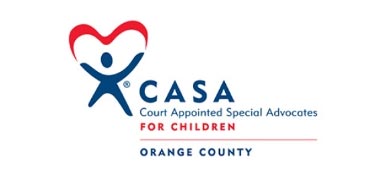
When a parent or other older relative starts to develop Alzheimer’s or another form of dementia, the signs may not be immediately apparent. They may start out still able to manage familiar day-to-day tasks, but gradually lose the ability to handle more complex matters independently. One of the first noticeable signs may be problems managing their finances, especially if they have previously been reliably responsible with their money.
For their well-being, and your peace of mind, it is important to recognize early signs of money problems related to dementia so you can act appropriately to protect your loved one. Putting essential legal tools in place can also ensure that you have the authority to manage their finances for them when necessary. Older adults suffering from dementia are sought out targets for fraud or financial abuse, so the sooner you put safeguards in place, the more likely you will be able to prevent serious harm.
Signs of Dementia-Related Money Problems
When somebody starts to lose control of their finances due to dementia, they may not speak up to ask for help. They may be reluctant to lose their independence, and actively try to conceal the extent of their money problems. Or they may not realize that they’re no longer able to handle tasks that were once simple for them, such as balancing a checkbook or sticking to a budget. Many times, the most obvious sign may be their distrust and suspicion of those who try and help them.
What are some clues that a person is experiencing money troubles, even if they aren’t willing to talk about it? If you have access to their account information, a large number of new charges on their credit card bill or unexplained amounts missing from a checking or savings account can be red flags. Look also for unopened or unpaid bills or unexpected new purchases in their home. Or, some individuals pay bills two or three times, not recalling it has already been paid.
When you start to see concerning signs, it’s important to investigate and to keep an ongoing eye on how the person with dementia is doing. If you have not already done so, you should take the necessary steps to support them while allowing them the degree of independence they are able to handle, including establishing the legal right to act on their behalf in financial matters.
Providing Support with Respect and Compassion
A durable power of attorney is a legal document by which a person (the principal) gives another person (the agent) the authority to make financial transactions or legal decisions on their behalf. This person can be any trusted adult; ideally such a document will have already formed part of your loved one’s estate planning and will be in place when it is necessary to use it. If not, it is essential to create one while they still have the mental capacity and level of trust to consent to such an arrangement. If they do not, a conservatorship, in which the court appoints someone to act on behalf of a person who is unable to take care of themselves, may be necessary.
For those who have been successful, independent adults, it can be hard to surrender control of their financial affairs to someone else. It may be helpful to collaborate with them on steps that reduce the chances that important bills will go unpaid and limit the opportunities for unrestricted spending. These can include setting up automated bill payments, arranging for regular grocery deliveries, canceling unused credit and debit cards, lowering the spending limit on remaining cards, and providing a set cash allowance. Whatever strategy is most appropriate for their situation, the earlier you address the problem, the easier it will be to gain their understanding and cooperation on solutions.
Your Legal Resource for Protecting Your Loved Ones
Everybody wants their elder family members to be able to live their final years with dignity and the care they need. When dementia complicates the issue, the expert attorneys at NM Law can help ensure that you are able to act on their behalf in their best interests. To learn more about your legal options, contact us here to schedule a consultation.
Testimonials
Charities We Support
We dedicate pro bono time, volunteer services, and a percentage of our gross revenue to these organizations. In 2023, we sponsored a refugee family of five to come to the United States and start a new life.
Each year our law firm decides as a group which charities to assist with our time, money, and expertise. Please feel free to click on any of the charities below and make a donation of your own.


















